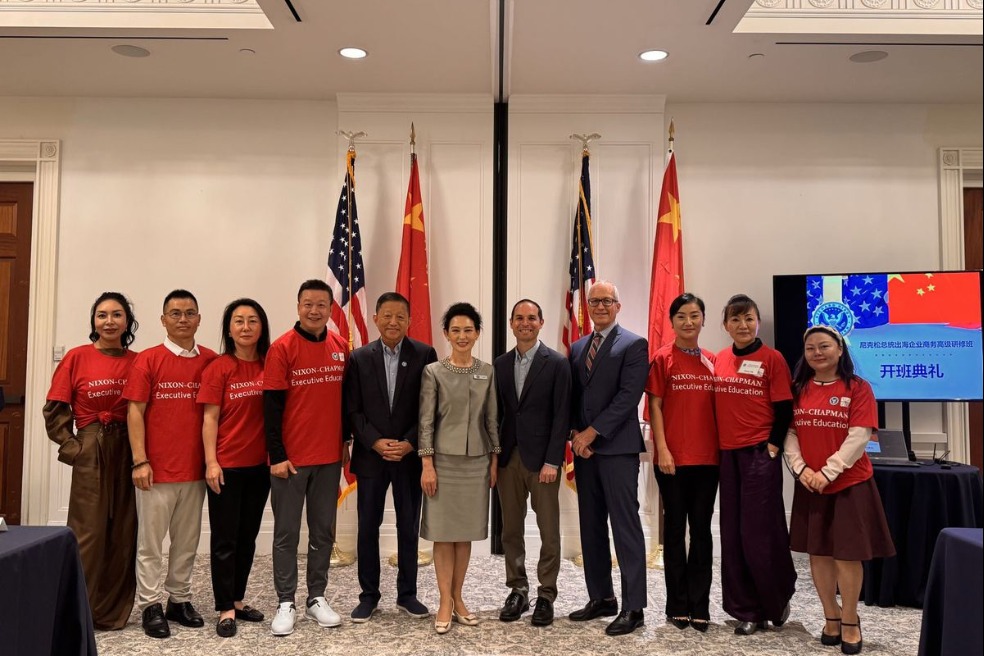Relishing blend of Chinese, African cuisines to create flavors of friendship

Amid deepening ties and cooperation between China and Africa, the dinner table has emerged as an unexpected yet powerful platform for exchanges — where flavors blend, traditions meet, and cultures find common ground.
Once carried by ships along the ancient Maritime Silk Road, spices, tea and cooking traditions, which linked China with Eastern Africa, are now being rediscovered and reinvented in modern kitchens and restaurants across both regions.
This evolving culinary connection has been fueled by the movement of people — hundreds of thousands of Chinese nationals living and working in African cities, alongside a growing community of Africans studying, trading and cooking in China.
Notably, Chinese restaurants in Kenya, Ethiopia, Nigeria and South Africa have started offering dishes such as nyama choma, a barbecued meat popular in Eastern Africa, injera, the sour, spongy flatbread that is an Ethiopian staple, and Ugali, a maize flour staple in Eastern and Southern Africa, alongside dumplings or stir-fry dishes.
On the other hand, African restaurants in Beijing and Guangzhou, the capital of Guangdong province, are increasingly adapting their styles to appeal to Chinese palates, offering creations such as jollof fried rice, a popular Western African dish and Sukuma wiki stirfry, an Eastern African favorite made from collard greens.
Ruth Ngare, an avid lover of Chinese cuisine in Nairobi, the capital of Kenya, said she often visits Chinese restaurants with her family and friends. Inspired by the flavors, she has learned how to prepare some of the dishes herself and occasionally delights her family with a homemade Chinese meal.
"I learn cooking techniques by watching YouTube videos," Ngare said. "It's fascinating to see some Chinese restaurants experimenting with local dishes. The integration of Chinese and African cuisines is truly exciting."
Culinary collaboration
From individual enthusiasts like Ngare to professional chefs and policymakers, the appetite for Sino-African culinary collaboration is growing rapidly.
The 15th International Chinese Catering Development Forum, held on Oct 30 in Nairobi, marked another step toward deepening this culinary fusion.
Themed "Integration and Development of Chinese and African Culinary Cultures", the forum featured discussions on the evolution of Chinese cuisine, the growing presence of African ingredients in Chinese dishes, the expansion of Chinese culinary brands across African markets, and how culinary exchange deepens China-Africa relations.
According to a report on the development of Chinese cuisine in Africa, launched on Oct 30 during the event, Chinese restaurants are becoming popular in many African countries, such as Nigeria, Mauritius, South Africa, Morocco, Kenya and Egypt. In many countries, traditional Chinese cuisine has been blended with local elements to cater to locals, said the report.
According to Guo Haiyan, Chinese ambassador to Kenya, cuisine reflects civilization — and food serves as a bridge for cultural exchange.
Guo said the journey of Chinese cuisine in Africa is a vivid story of cultural exchange and fusion.
"From using local beef bones to make rich noodle soup, to inventing the innovative 'African Spicy Chicken', countless chefs have proven with wisdom and perseverance that the vitality of cuisine stems from both inheritance and innovation, and that the power of culture resides in both tradition and inclusiveness," she said.
Zhang Zhizhong, minister counselor at the Chinese embassy in Kenya, noted that Chinese cuisine has gradually become part of Africa's diverse culinary landscape.
"We are pleased to see that Chinese cuisine is being wellspread and developed in many parts of the world, including Africa," Zhang said. "With its unique aroma and character, it has taken on the mission of sharing Chinese food culture globally and fostering cross-cultural exchanges."
He added that the internationalization of Chinese cuisine not only promotes standardization and brand building, but also boosts exports of Chinese agricultural products, kitchen equipment and related industries.
John Ololtuaa, Kenya's principal secretary for tourism, urged Chinese associations to collaborate with their Kenyan counterparts to explore and learn about local cuisines.
"I look forward to experiencing Chinese cuisine infused with Kenyan flavors — from nyama choma to other traditional dishes," Ololtuaa said while speaking at the 2025 Africa Championship of Chinese Cuisine, held on Oct 30 prior to the forum.
Leng Yonghe, president of the Kenya Chinese Culinary Culture Association, reaffirmed the commitment of Chinese restaurants in Africa to improve culinary standards, but noted that sourcing fresh ingredients such as vegetables and seafood remained a major challenge in Nairobi, affecting food quality.
"However, the market is vast and full of potential," Leng said. "As seasoned professionals, we need to bring in advanced suppliers and concepts, enhance chefs' skills and establish regular training programs."
































